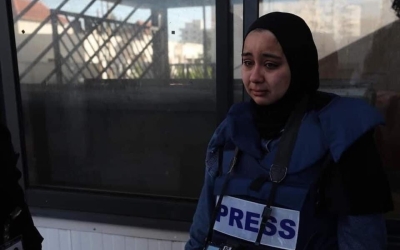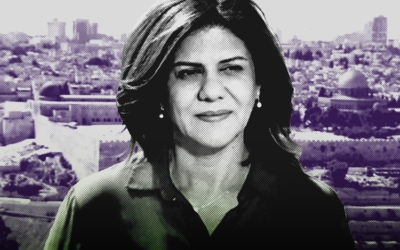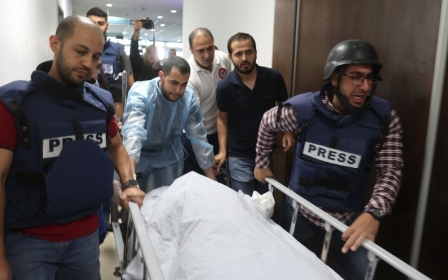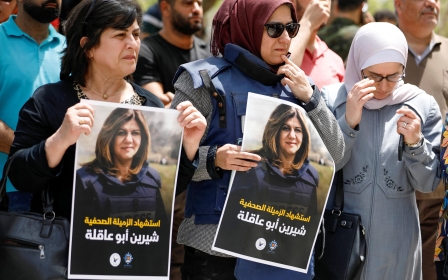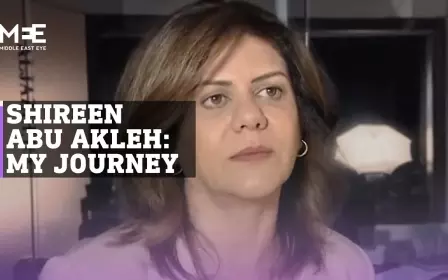Shireen Abu Akleh: Friends and colleagues mourn slain Palestinian journalist
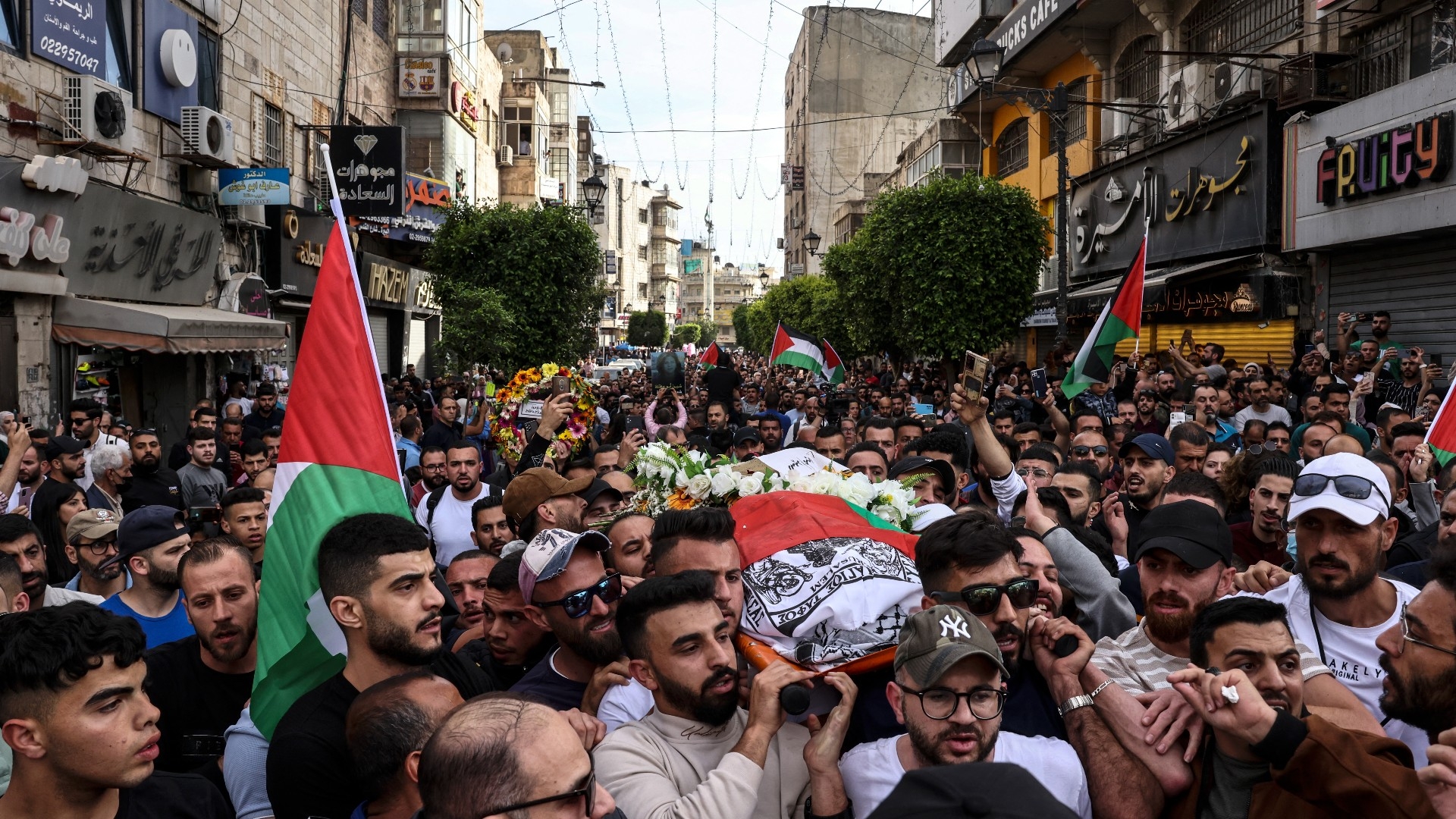
"There's a raid in Jenin. We are heading there now. We will let you know."
This was the last correspondence sent by Shireen Abu Akleh to her colleagues at Al Jazeera, minutes before she was fatally shot in the head by an Israeli sniper.
It is a note she had sent countless times during her distinguished 30-year career, which took her to the pinnacle of Arab journalism.
'She was the voice of the voiceless'
- Rami Mahdawi, journalist
Seen as an icon of Palestinian journalism, especially to young Palestinian women reporters, Abu Akleh's killing has been met with shock and grief - especially among those who knew her best.
"The Shireen I worked with and knew for 25 years never complained, was never late and was always kind," said Walid al-Omari, Al Jazeera's Jerusalem bureau chief, speaking live on air.
"She was loved by everyone, and everyone loved her," Omari added.
'Part of every Palestinian household'
Abu Akleh was born in Jerusalem in 1971 to a Christian family which hails from Bethlehem.
The veteran reporter, who also held US citizenship, grew up in Jerusalem where she graduated from the catholic Rosary Sisters' High School before moving to Jordan's Amman for university.
There, she studied architecture at the University of Science and Technology, before switching to study journalism at Yarmouk University.
After graduating, she returned to the occupied Palestinian territories to start her career working with agencies including Unrwa, the Voice of Palestine radio station, Amman TV, and France's Monte Carlo radio.
In 1997, she joined Al Jazeera, a year after the Doha-based news network was launched, and was one of the first journalists to join the channel's Jerusalem office.
Over the next 25 years, she became a household name as Arab audiences turned to her for coverage of Palestine and Israel.
Her most renowned reports covered the Israeli military operations in the occupied West Bank during the Second Palestinian Intifada between 2000-2005.
She also worked outside of Palestine, covering events from Egypt and the United Kingdom, as well as presidential elections from the United States.
"All of Palestine has lost a human being we all connect with and feel an intimate connection with," said researcher Honaida Ghanim, a friend of Abu Akleh.
"Shireen was part of every Palestinian household. She was everyone's daughter."
'Voice of the voiceless'
Ghanim told MEE that Abu Akleh was one of the most professional and morally driven people she knew.
"She had a calm and relaxing voice in the most difficult moments. She always had a shy smile on her face."
Rami Mahdawi, a journalist who knew Abu Akleh for decades, said what he would miss most was her dedication to telling the stories of those who most needed it.
"Shireen was very helpful to everyone, it was her most admired trait," Mahdawi told MEE.
"This was reflected in her stories. She was the voice of the voiceless, always telling the stories of the most innocent; children, the poor and the working class."
The influence Shireen had on Arab journalists went far beyond her daily reporting.
Her stature turned her into an icon of Arab journalism, said Kholoud Masalha, a Nazareth-based journalist and colleague.
"Shireen was a university in journalism for all of us," Masalha told MEE.
"She influenced all of us. She taught us how to be in this career and how to succeed in it," she added, referring to a generation of women Palestinian journalists who took inspiration from Abu Akelah's work.
The slain reporter - survived by her brother, Tony Abu Akleh - was mourned across Palestinian cities on Wednesday.
Her body was carried from Jenin to Nablus before arriving in Ramallah in the afternoon, where her colleagues at Al Jazeera bid her farewell.
She will be laid to rest on Friday in Jerusalem, her hometown.
Middle East Eye propose une couverture et une analyse indépendantes et incomparables du Moyen-Orient, de l’Afrique du Nord et d’autres régions du monde. Pour en savoir plus sur la reprise de ce contenu et les frais qui s’appliquent, veuillez remplir ce formulaire [en anglais]. Pour en savoir plus sur MEE, cliquez ici [en anglais].


